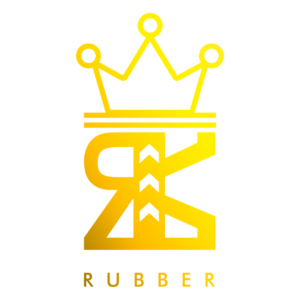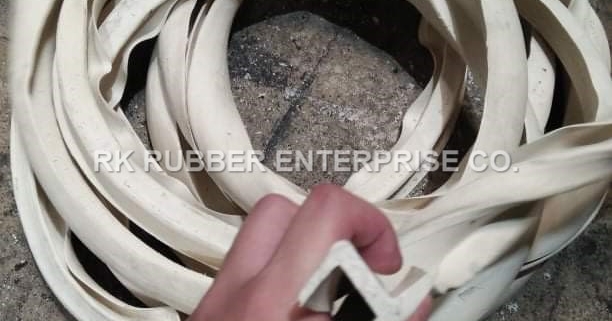J-Type Rubber Seal Manufacturer in the Philippines
J-Type rubber seals are essential in various industries, including aerospace, automotive, and industrial machinery. They offer a unique “J” shape for a tighter fit, minimizing leak risks and enhancing durability and versatility. Key applications include aircraft doors, hydraulic and pneumatic systems, and industrial pumps and valves. To cater to the Philippines’ growing industries, local manufacturers must adhere to stringent technical specifications, such as operating temperature ranges and compression set resistance. Finding a reliable J-Type rubber seal manufacturer in the Philippines can be important in ensuring system performance and safety, and several reputable options are worth exploring further.
Key Points
- A reputable J-Type rubber seal manufacturer in the Philippines can provide customized sealing solutions for various industries.
- Filipino manufacturers use high-quality materials like nitrile rubber, silicone, and EPDM to ensure durability and versatility.
- The manufacturing process involves tooling and mold design, material selection, extrusion, curing, and inspection to meet quality standards.
- Companies adhere to stringent quality control measures, including raw material selection, regular inspections, and rigorous testing for optimal performance.
- Local manufacturers offer competitive pricing, flexible installation options, and reliable sealing solutions that cater to specific industry requirements.
J-Type Rubber Seal Overview
J-Type rubber seals have been a cornerstone of the sealing industry for over seven decades, with their invention in the 1940s revolutionizing the way fluids and gases are contained in various applications. This design’s unique “J” shape allows for a tighter fit, minimizing leak risks, and is composed of both natural and synthetic rubber, enhancing durability. J-Type rubber seals have been a key component in numerous industries, showcasing their versatility and efficiency.
The primary purpose of J-Type rubber seals is to prevent the leakage of fluids and gases. Their design facilitates an easy fit into grooves, providing a tight seal under pressure. Composed of various materials, such as nitrile rubber, silicone, EPDM, or Viton, these seals cater to different temperature and chemical resistance requirements.
The J-Type rubber seal’s unique design and material properties make it suitable for various applications, including hydraulic systems, pneumatic systems, pumps, and valves. Its efficiency and durability have established it as a reliable sealing solution across multiple industries. With its long lifespan and high resistance to contamination, the J-Type rubber seal continues to be a crucial component in modern engineering.
Key Applications and Uses
Aircraft doors, industrial machinery, and automotive systems are just a few examples of the diverse range of applications that benefit from the unique sealing properties of J-type rubber seals. These seals play an essential role in maintaining the integrity of various systems, from preventing fluid and gas leaks to guaranteeing the proper functioning of critical machinery. In the aerospace industry, J-Type seals are used in aircraft doors, windows, and fuel systems to prevent cabin pressure loss and fuel leaks.
In the automotive sector, J-Type seals are used in hydraulic and pneumatic systems, pumps, and valves, providing durable sealing solutions that can withstand repetitive motion and pressure variations. Additionally, these seals are used in industrial machinery, including pumps, valves, and cylinders, to prevent fluid and gas leaks and guarantee the efficient operation of equipment. The versatility and effectiveness of J-Type rubber seals make them an essential component in various industries, providing reliable sealing solutions that enhance system performance and safety.
Advantages and Benefits
Effective sealing solutions play a pivotal role in maintaining the integrity and efficiency of various systems across industries. The J-Type rubber seal, in particular, offers numerous benefits and advantages that make it a popular choice among manufacturers and engineers.
Some of the key advantages and benefits of J-Type rubber seals include:
- High resistance to oil and water contamination, making them suitable for use in harsh environments
- Durability and long lifespan, reducing maintenance costs and minimizing downtime
- Eco-friendliness, as they are made from sustainable materials and are designed to be recyclable
- Flexibility and ease of installation, allowing for quick and efficient fitting into various applications
- Cost-effectiveness, as they provide a reliable and efficient sealing solution at a competitive price
Technical Specifications
The technical specifications of J-Type rubber seals are a vital consideration in determining their suitability for various industrial applications. These specifications provide a clear understanding of the seal’s physical properties, material composition, and performance capabilities. Typically, J-Type rubber seals have a thickness range of 2mm to 10mm, making them suitable for a variety of applications. The operating temperature range of -40°C to +120°C guarantees that the seal can withstand extreme temperatures, while the compression set resistance and Shore hardness (60 to 80 A) assure its durability.
The material properties of J-Type rubber seals, such as nitrile rubber, silicone, EPDM, or Viton, are also significant in determining their suitability for specific applications. These materials provide varying levels of resistance to chemicals, oils, and fuels, making them suitable for use in different industries. The technical specifications of J-Type rubber seals are essential in confirming that the seal can withstand the demands of the application and provide a reliable seal. By considering these specifications, manufacturers and engineers can select the most suitable J-Type rubber seal for their specific needs. This careful selection guarantees peak performance, safety, and efficiency.
Manufacturing Process
Producing high-quality J-Type rubber seals requires a meticulous manufacturing process that combines precision engineering with advanced materials. This process involves a series of steps to guarantee that the seals meet the required standards for durability, flexibility, and sealing efficiency.
The manufacturing process of J-Type rubber seals can be broken down into the following key stages:
- Tooling and mold design: Creating molds that accurately replicate the desired J-Type shape and size.
- Material selection and compounding: Choosing the right materials and mixing them to achieve the desired properties.
- Extrusion and calendaring: Shaping the material into the desired form using extrusion and calendaring techniques.
- Curing and vulcanization: Treating the material to cross-link the molecules and enhance its strength and durability.
- Inspection and testing: Verifying that the seals meet the required standards for quality and performance.
Industry-Specific Solutions
Industry-specific solutions for J-Type rubber seals cater to the unique requirements of various sectors, including industrial sealing solutions tailored to meet the demands of high-performance equipment. Customized seal designs enable manufacturers to adapt the seals to specific application needs, ensuring peak performance and minimizing potential leak risks. By selecting application-based materials, J-Type rubber seal manufacturers can provide solutions that withstand the distinct environmental conditions and operating parameters of each industry.
Industrial Sealing Solutions
Numerous manufacturing processes and equipment rely on effective sealing solutions to maintain operational efficiency, prevent fluid leakage, and guarantee environmental safety. Industrial sealing solutions play a crucial role in guaranteeing the smooth operation of various industries, including automotive, aerospace, and oil and gas. J-Type rubber seals are widely used in these industries due to their unique design and durability.
These seals are designed to provide a tight seal under pressure, making them ideal for applications where fluid leakage can have serious consequences. Some of the key applications of J-Type rubber seals in industrial sealing solutions include:
- Hydraulic systems, where they prevent fluid leakage and maintain system pressure
- Pneumatic systems, where they contain compressed air and enhance system efficiency
- Pumps and valves, where they provide durable sealing solutions that can withstand repetitive motion and pressure variations
- Aircraft doors and windows, where they prevent cabin pressure loss and guarantee environmental control
- Fuel systems, where they prevent fuel leaks and guarantee operational safety
Customized Seal Designs
Customized seal designs play a pivotal role in addressing the unique sealing requirements of various industries. J-Type rubber seals can be tailored to meet the specific needs of clients across different sectors, including automotive, aerospace, and industrial applications. By customizing the seal design, manufacturers can guarantee that the product meets the exact specifications and performance requirements of the client.
These customized seal designs can be achieved through various methods, including modifying the J-Type rubber seal’s dimensions, material properties, and surface finish. For instance, the seal can be designed to operate within a specific temperature range or to withstand exposure to certain chemicals. Additionally, the seal can be engineered to fit complex geometries or to provide a specific level of compression set resistance.
Application-Based Materials
What sets J-Type rubber seals apart from general-purpose seals is their adaptability to various industries through the strategic selection of materials. This adaptability guarantees that the seals can provide peak performance and durability in diverse environments.
Different materials are used to cater to the specific requirements of various industries. For instance:
- Nitrile rubber is commonly used in the automotive sector for its resistance to oil and fuel.
- Silicone is used in food processing and medical applications due to its non-toxic and sterilizable properties.
- EPDM (ethylene propylene diene monomer) is used in construction and industrial applications for its resistance to extreme temperatures and weathering.
- Viton is used in aerospace and chemical processing for its high resistance to chemicals and extreme temperatures.
- Neoprene is used in marine applications for its resistance to saltwater and oil.
Quality Control Measures
At RK Rubber Enterprise Co., our commitment to quality is unwavering, and we implement stringent quality control measures to affirm that every J-Type rubber seal meets the highest standards of performance, durability, and safety. Our quality control process begins with the selection of raw materials, affirming that only the finest materials are used in the production of our J-Type rubber seals. We conduct regular inspections of our manufacturing process, from compounding to molding, to affirm that every seal meets our exacting standards.
We also conduct rigorous testing of our J-Type rubber seals, including compression set resistance, tensile strength, and elongation at break. These tests are designed to simulate the harsh conditions that our seals may encounter in real-world applications, and we only release seals that meet our high standards. Additionally, we have implemented a Total Quality Management (TQM) system, which affirms that every aspect of our production process is subject to continuous improvement and quality control. Our commitment to quality control affirms that our J-Type rubber seals are reliable, durable, and safe for use in a wide range of applications.
Frequently Asked Questions
What Are the Standard Colors for J-Type Rubber Seals?
J-Type rubber seals typically come in various colors, with standard colors including black, blue, green, and red, often denoting different materials or Shore hardness levels, such as nitrile, EPDM, or silicone-based compounds, for diverse applications.
Can I Customize J-Type Seals for Specific Shapes and Sizes?
Yes, J-Type rubber seals can be customized for specific shapes and sizes to meet unique sealing requirements, leveraging advanced manufacturing techniques and versatile materials to guarantee precise fits and peak performance in diverse applications.
Are J-Type Rubber Seals Compatible With Food-Grade Applications?
J-Type rubber seals can be compatible with food-grade applications, depending on the material used. Certain materials, such as EPDM and nitrile rubber, meet FDA standards for indirect food contact, ensuring safety and compliance in food processing environments.
What Is the Typical Lead Time for Custom J-Type Seal Orders?
For custom J-Type seal orders, typical lead times range from 2-6 weeks, depending on complexity, material availability, and production volume, with expedited options available for urgent requirements, ensuring timely delivery to meet customer needs.
Do You Offer Certifications for J-Type Seals for Export Purposes?
We provide various certifications for export purposes, including ISO 9001, IATF 16949, and CE markings, ensuring compliance with international standards and regulations, while meeting customer requirements for quality and safety assurance.
Conclusion
The J-Type rubber seal‘s versatility and durability have solidified its position as a cornerstone in the sealing industry. Its widespread adoption across various sectors underscores its effectiveness in maintaining system performance and safety. With continued innovation and a commitment to quality assurance, the global demand for J-Type rubber seals is expected to persist, driving growth and expansion in the industry. The seal’s reputation as a reliable component is anticipated to endure, supporting its sustained relevance.

